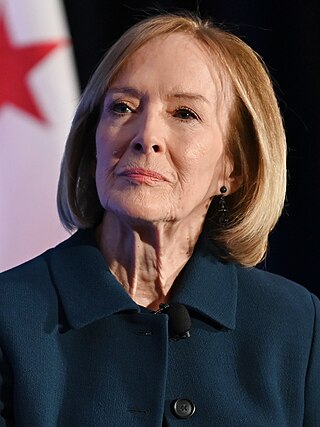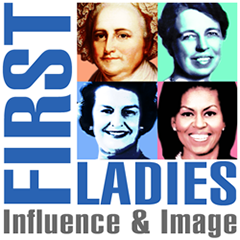
The president of the United States (POTUS) is the head of state and head of government of the United States of America. The president directs the executive branch of the federal government and is the commander-in-chief of the United States Armed Forces.

The vice president of the United States (VPOTUS) is the second-highest officer in the executive branch of the U.S. federal government, after the president of the United States, and ranks first in the presidential line of succession. The vice president is also an officer in the legislative branch, as the president of the Senate. In this capacity, the vice president is empowered to preside over the United States Senate, but may not vote except to cast a tie-breaking vote. The vice president is indirectly elected at the same time as the president to a four-year term of office by the people of the United States through the Electoral College, but the electoral votes are cast separately for these two offices. Following the passage in 1967 of the Twenty-fifth Amendment to the US Constitution, a vacancy in the office of vice president may be filled by presidential nomination and confirmation by a majority vote in both houses of Congress.

The 1928 United States presidential election was the 36th quadrennial presidential election, held on Tuesday, November 6, 1928. Republican former Secretary of Commerce Herbert Hoover defeated the Democratic nominee, Governor Al Smith of New York. After President Calvin Coolidge declined to seek reelection, Hoover emerged as his party's frontrunner. As Hoover's party opponents failed to unite around a candidate, Hoover received a large majority of the vote at the 1928 Republican National Convention. The strong state of the economy discouraged some Democrats from running, and Smith was nominated on the first ballot of the 1928 Democratic National Convention. Hoover and Smith had been widely known as potential presidential candidates long before the 1928 campaign, and both were generally regarded as outstanding leaders. Both were newcomers to the presidential race and presented in their person and record an appeal of unknown potency to the electorate. Both faced serious discontent within their respective parties' membership, and both lacked the wholehearted support of their parties' organization.
The West Wing is an American political drama television series created by Aaron Sorkin that was originally broadcast on NBC from September 22, 1999, to May 14, 2006. The series is set primarily in the West Wing of the White House, where the Oval Office and offices of presidential senior personnel are located, during the fictitious Democratic administration of President Josiah Bartlet.
Cable-Satellite Public Affairs Network is an American cable and satellite television network, created in 1979 by the cable television industry as a nonprofit public service. It televises proceedings of the United States federal government and other public affairs programming. C-SPAN is a private, nonprofit organization funded by its cable and satellite affiliates. It does not have advertisements on any of its television networks or radio stations, nor does it solicit donations or pledges on-air. However their official website has banner advertisements, and streamed videos also have advertisements. The network operates independently; the cable industry and the U.S. Congress have no control over its programming content.

Abigail Adams was the wife and closest advisor of John Adams, the second president of the United States, and the mother of John Quincy Adams, the sixth president of the United States. She was a founder of the United States, and was both the first second lady and second first lady of the United States, although such titles were not used at the time. She and Barbara Bush are the only two women in American history who were both married to a U.S. president and the mother of a U.S. president.

Judy Carline Woodruff is an American broadcast journalist who has worked in local, network, cable, and public television news since 1970. She was the anchor and managing editor of the PBS NewsHour through the end of 2022. Woodruff has covered every presidential election and convention since 1976. She has interviewed several heads of state and moderated U.S. presidential debates.

Jane Meredith Mayer is an American investigative journalist who has been a staff writer for The New Yorker since 1995. She has written for the publication about money in politics; government prosecution of whistleblowers; the United States Predator drone program; Donald Trump's ghostwriter, Tony Schwartz; and Trump's financial backer, Robert Mercer. In 2016, Mayer's book Dark Money—in which she investigated the history of the conservative fundraising Koch brothers—was published to critical acclaim.

In political studies, surveys have been conducted in order to construct historical rankings of the success of the presidents of the United States. Ranking systems are usually based on surveys of academic historians and political scientists or popular opinion. The scholarly rankings focus on presidential achievements, leadership qualities, failures, and faults. Popular-opinion polls typically focus on recent or well-known presidents.

Douglas Brinkley is an American author, Katherine Tsanoff Brown Chair in Humanities, and professor of history at Rice University. Brinkley is a history commentator for CNN, Presidential Historian for the New York Historical Society, and a contributing editor to the magazine Vanity Fair. He is a public spokesperson on conservation issues. He joined the faculty of Rice University as a professor of history in 2007. Brinkley joined the board of directors for the National Archives Foundation in 2023.

Richard Norton Smith is an American historian and author, specializing in United States presidents and other political figures. In the past, he worked as a freelance writer for The Washington Post, and worked with U.S. senators Edward Brooke and Bob Dole.

Millard Fillmore was the 13th president of the United States, serving from 1850 to 1853, and was the last president to have been a member of the Whig Party while in office. A former member of the U.S. House of Representatives, Fillmore was elected the 12th vice president in 1848, and succeeded to the presidency when Zachary Taylor died in July 1850. Fillmore was instrumental in passing the Compromise of 1850, which led to a brief truce in the battle over the expansion of slavery.

The Public Broadcasting Service (PBS) is an American public broadcaster and non-commercial, free-to-air television network based in Arlington, Virginia. PBS is a publicly funded nonprofit organization and the most prominent provider of educational programs to public television stations in the United States, distributing shows such as Frontline, Nova, PBS News Hour, Masterpiece, Sesame Street, and This Old House.
American Presidents: Life Portraits is a series produced by C-SPAN in 1999. Each episode was aired live, and was a two- to three-hour look at the life and times of one particular president of the United States. Episodes were broadcast from locations of importance to the profiled president, featured interviews with historians and other experts, and incorporated calls from viewers. The series served as a commemoration of C-SPAN's 20th anniversary.
American Writers: A Journey Through History is a series produced and broadcast by C-SPAN in 2001 and 2002 that profiled selected American writers and their times. Each program was a two- to three-hour look at the life and times of one or more significant American writer. Episodes were broadcast from locations of importance to the profiled writer(s) and featured interviews with historians and other experts. The series had an overall budget of $4,500,000. The first program aired on March 19, 2001, and focused on William Bradford and the Mayflower Compact.

First Ladies: Influence & Image is a 35-episode American television series produced by C-SPAN that originally aired from February 25, 2013 to February 10, 2014. Each episode originally aired live and looked at the life and times of one or more of the first ladies of the United States. Episodes featured interviews with historians, journalists, and other experts; included footage of locations significant to the featured first lady and interviews with several contemporary first ladies; and incorporated calls and tweets from viewers. C-SPAN has archived all video from the series to its website. It was produced in cooperation with the White House Historical Association, and was hosted by C-SPAN co-CEO Susan Swain.

The campaign of Latter Day Saint movement founder Joseph Smith and his vice presidential running mate, Church of Jesus Christ of Latter Day Saints First Presidency first counselor Sidney Rigdon, took place in 1844. The United States presidential election of that year was scheduled for November 1 to December 4, but Smith was killed in Carthage, Illinois, on June 27. Smith was the first Latter Day Saint to seek the presidency, and the first American presidential candidate to be assassinated.
The 1988 United States presidential debates were a series of debates held for the presidential election.













